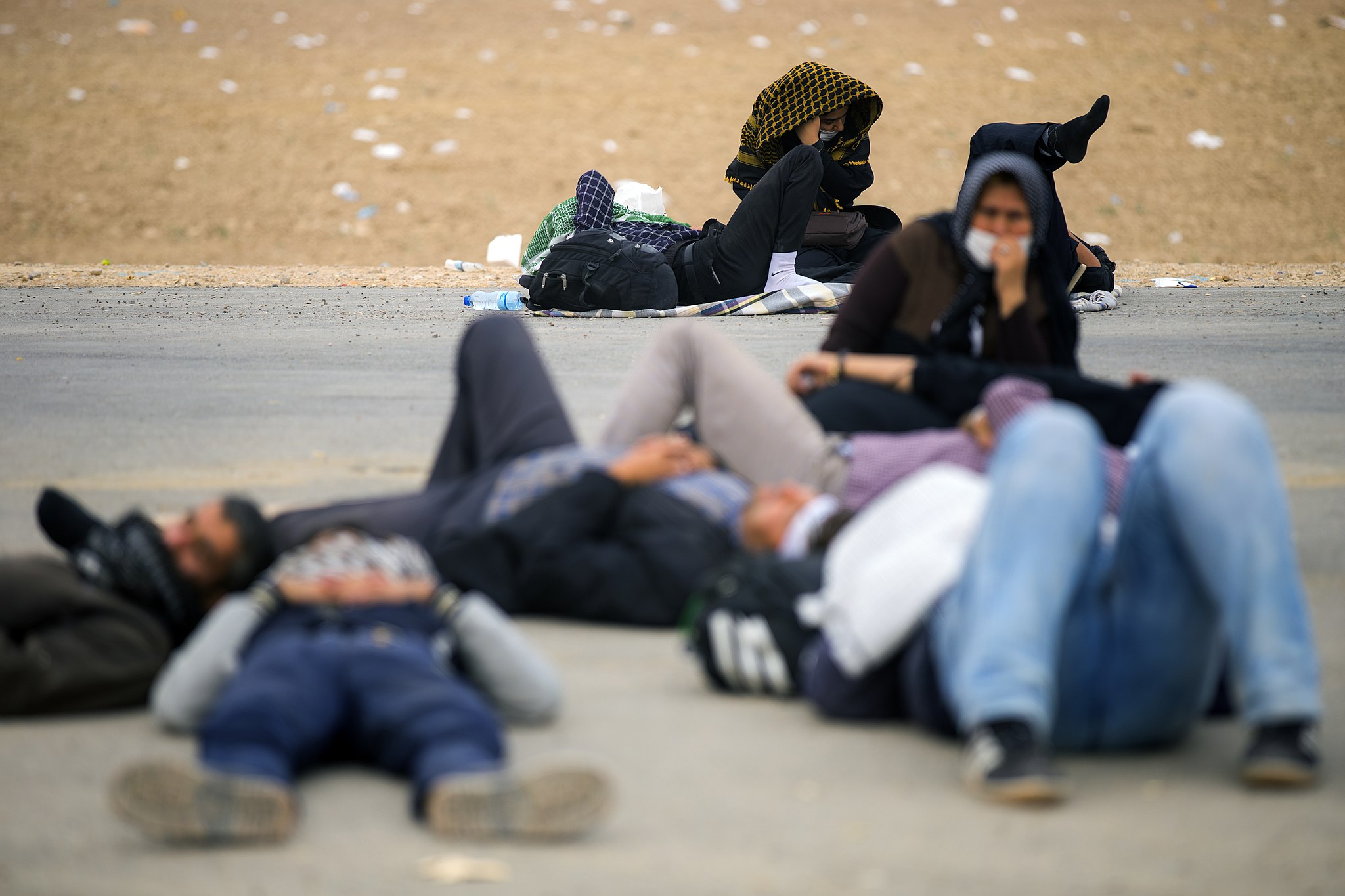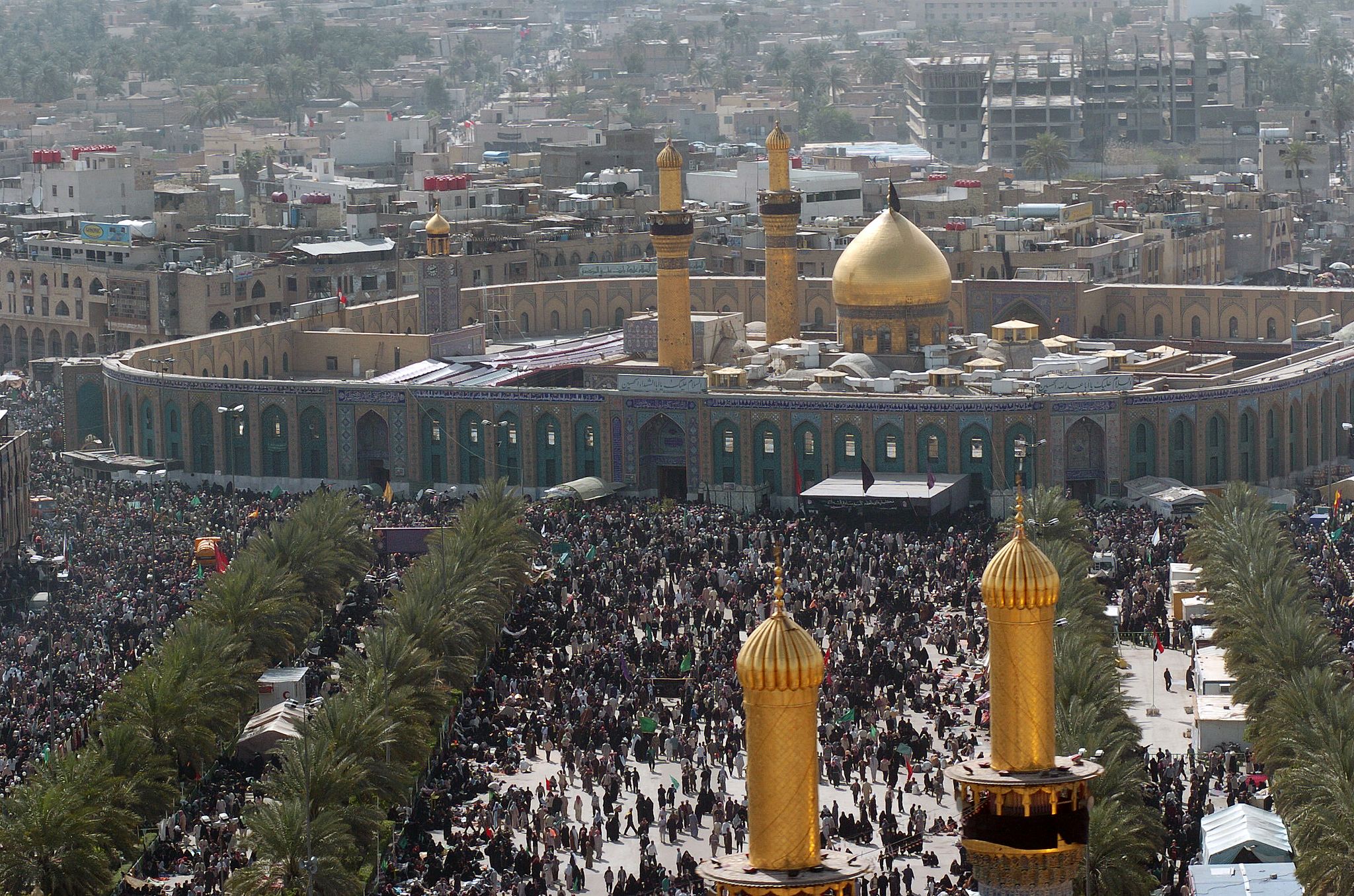Hotter Iraqi summers could make dangerous heat commonplace for millions of Shia Muslim pilgrims.
19 October 2022

Climate change is increasing temperatures in Iraq, which could expose Muslims to higher risks of heat-related illness during religious pilgrimages.
Credit: Mostafameraji via Openverse.
AGU press contact:
Liza Lester, +1 (202) 777-7494, [email protected] (UTC-4 hours)
Contact information for the researchers:
Yeon-Woo Choi, Ralph M. Parsons Laboratory, Massachusetts Institute of Technology, Cambridge, MA, USA, [email protected] (UTC-4 hours)
Elfatih A. B. Eltahir, Ralph M. Parsons Laboratory, Massachusetts Institute of Technology, Cambridge, MA, USA, [email protected] (UTC-4 hours)
WASHINGTON — Around 20 million Shia Muslims participate in Arba’een, one of the world’s largest religious gatherings. A new study projects climate change will make dangerous temperatures more common during Arba’een by the end of the 21st century, threatening participants with an increased risk of heat-related illness.
Pilgrims are exposed to the elements while traveling on foot to Karbala, Iraq, where they commemorate the martyrdom of Al-Hussain ibn Ali, the grandson of the Prophet Muhammad. On one popular route, pilgrims travel around 80 kilometers (~50 miles) from Najaf, Iraq, and typically reach Karbala within one to three days, but other routes can be as long as 500 kilometers (~311 miles).

Millions of pilgrims gather around the Holy Shrines of Imam Hussain and Imam Abbas in Karbala, Iraq during Arba’een. Heat-related illness is already a concern whenever these crowded conditions occur in extreme summer temperatures, but climate change could make dangerous temperatures more common by the end of the 21st century.
Credit: Larry E. Johns via Wikimedia Commons
Arba’een is scheduled according to the Islamic calendar, which is based on the lunar cycles, so it occurs 11 days earlier on our solar calendar each year, progressing through the seasons. Wintertime temperatures during Arba’een should remain tolerable, but when Arba’een occurs in the summer, heat stress is likely to reach dangerous levels by the end of the 21st century, according to the new study published in Geophysical Research Letters, AGU’s journal for high-impact, short-format reports with immediate implications spanning all Earth and space sciences.
The study’s authors, Yeon-Woo Choi and Elfatih Eltahir, used regional climate models to predict how future climate change could threaten the health of Arba’een pilgrims. Their models forecasted future wet-bulb temperature, the lowest temperature to which evaporating water can cool air based on the local air temperature and humidity. Wet-bulb temperatures exceeding 24 degrees Celsius (75 degrees Fahrenheit) become dangerous because sweat cannot sufficiently prevent the body from heating up.
In high greenhouse gas emission scenarios, the study predicts average summertime temperatures could cross this danger threshold between 2050-2060. The authors said increasing nighttime temperatures may also prove problematic as they prevent pilgrims from adequately recovering from exposure to the day’s heat.
As climate change increases the region’s temperatures, it could put additional strain on healthcare systems already challenged by heat waves. Daytime temperatures during this year’s pilgrimage, which began ahead of Arba’een’s start on 16 September, were a challenge. According to Aljazeera, some pilgrims fainted when temperatures reached 41 degrees Celsius (105.8 degrees Fahrenheit). The study suggests such extreme heat events will become more common if Iraqi summers continue to warm.
The study adds Arba’een to the list of religious mass gatherings that could be impacted by climate change. According to Ashraf Zakey, a climate scientist with the Egyptian Meteorological Authority who was not involved in the study, Muslims participating in the Hajj pilgrimage to Mecca also face heat strokes, heat stress, and heat cramps. Previous research from Eltahir’s lab suggests climate change could also put Hajj pilgrims at increased risk of heat-related illness.
###
Contributed by Derek Smith
###
AGU (www.agu.org) supports 125,000 enthusiasts to experts worldwide in Earth and space sciences. Through broad and inclusive partnerships, we advance discovery and solution science that accelerate knowledge and create solutions that are ethical, unbiased and respectful of communities and their values. Our programs include serving as a scholarly publisher, convening virtual and in-person events and providing career support. We live our values in everything we do, such as our net zero energy renovated building in Washington, D.C. and our Ethics and Equity Center, which fosters a diverse and inclusive geoscience community to ensure responsible conduct.
Notes for Journalists:
This study is published with open access. Download a PDF copy of the paper here. Neither the paper nor this press release is under embargo.
Paper title:
“Heat Stress During Arba’een Foot-Pilgrimage (World’s Largest Gathering) Projected to Reach “Dangerous” Levels Due To Climate Change”
Authors:
- Yeon-Woo Choi, (corresponding author), Massachusetts Institute of Technology, Cambridge, MA, USA
- Elfatih A. B. Eltahir, (corresponding author), Massachusetts Institute of Technology, Cambridge, MA, USA